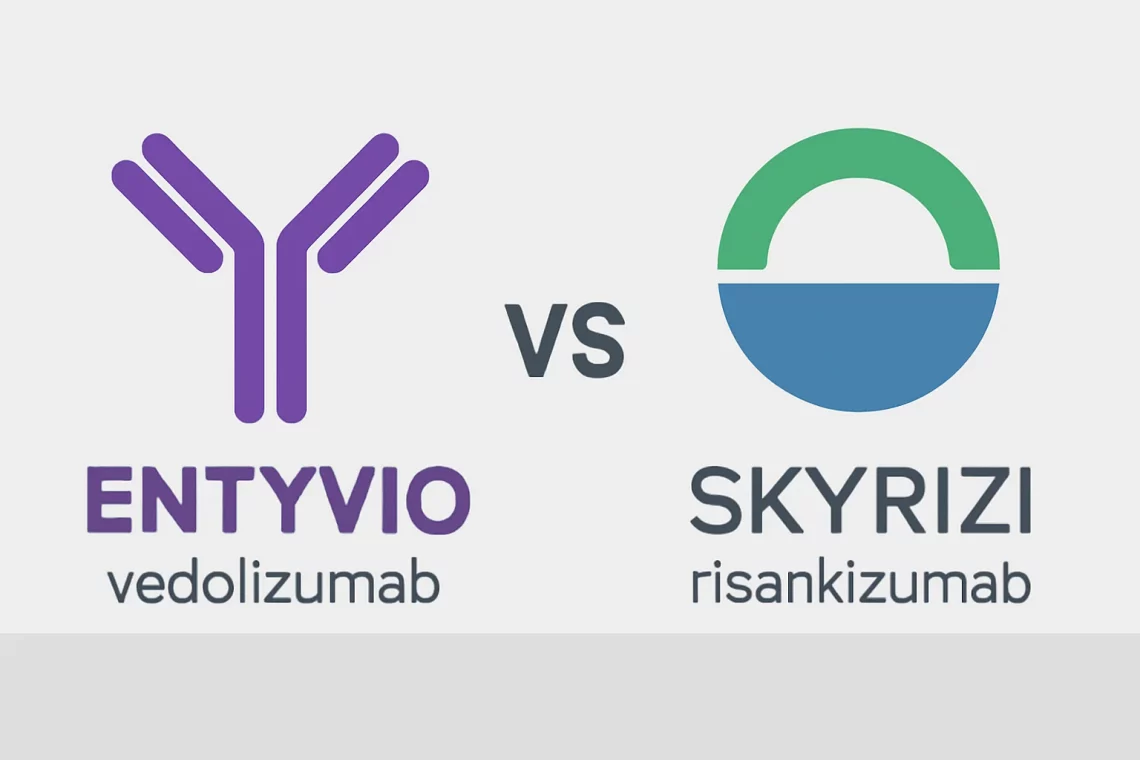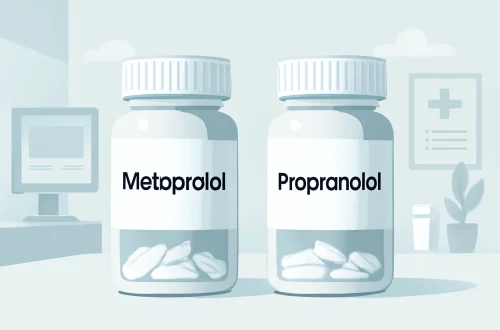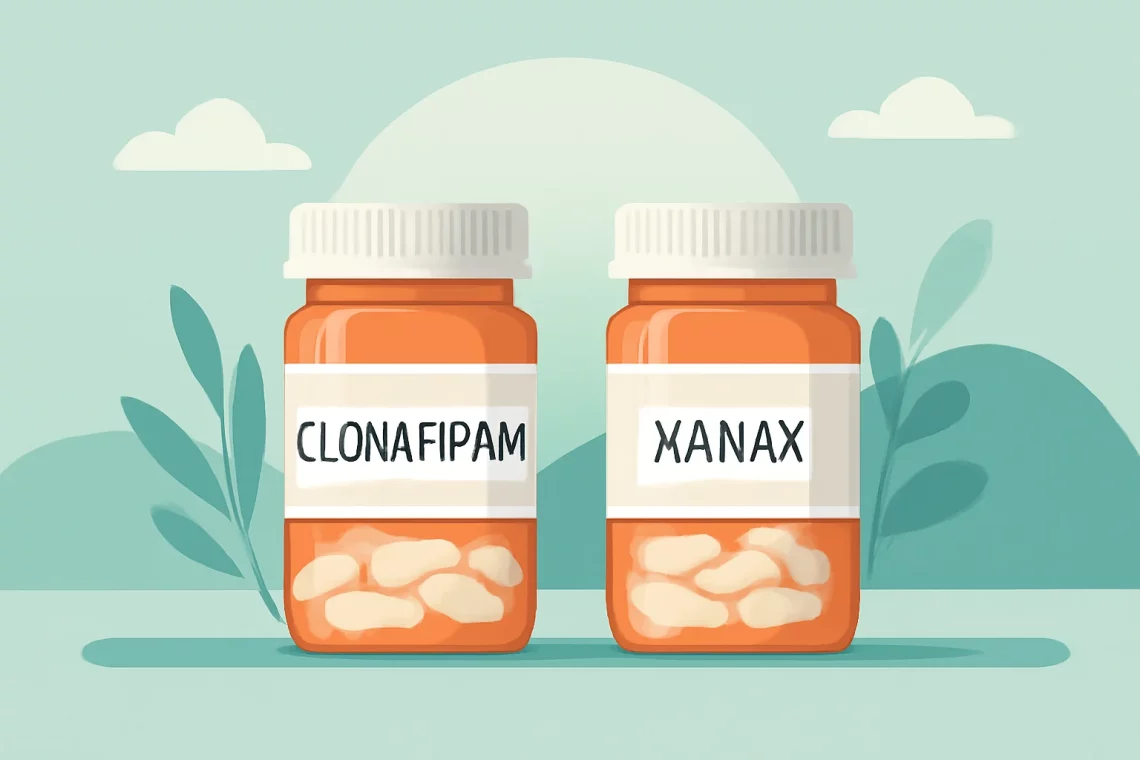-
Entyvio vs Skyrizi: A Comprehensive Comparison for Patients
In the realm of modern medicine, the treatment landscape for chronic autoimmune conditions has evolved significantly over the past few years. With advancements in biopharmaceuticals, patients now have more options than ever before. Among these, Entyvio and Skyrizi have emerged as popular choices for managing conditions such as ulcerative colitis and Crohn’s disease, as well as psoriasis and psoriatic arthritis. Both medications are designed to target specific pathways in the immune system, aiming to reduce inflammation and improve the quality of life for patients. As these treatments gain traction, patients and healthcare providers must navigate their unique attributes, benefits, and potential side effects. Understanding the nuances of each medication is…
-
Ativan vs Valium: Understanding Their Differences and Uses
Ativan and Valium are two widely recognized medications that belong to the benzodiazepine class of drugs. Both are primarily used to treat anxiety and other related conditions, but they have different properties, indications, and effects on the body. As the prevalence of anxiety disorders continues to rise, understanding the distinctions between these two medications becomes increasingly important. Benzodiazepines work by enhancing the effects of a natural chemical in the body called gamma-aminobutyric acid (GABA). This action leads to a calming effect on the central nervous system, which can be beneficial for those experiencing anxiety, panic attacks, or sleep disorders. However, while both Ativan (lorazepam) and Valium (diazepam) serve similar purposes,…
-
Viagra vs Sildenafil: Understanding the Differences and Similarities
Erectile dysfunction (ED) is a common condition that affects millions of men worldwide. It can be a source of embarrassment and frustration, impacting not only personal relationships but also overall quality of life. As awareness of ED has grown, so has the demand for effective treatments. Among the most recognized solutions are Viagra and its generic counterpart, sildenafil. While often used interchangeably, these two terms represent different aspects of the same medication. Understanding the nuances between them can help patients make informed decisions about their treatment options. In this article, we will explore the characteristics, effectiveness, and considerations surrounding Viagra and sildenafil, shedding light on their roles in managing erectile…
-
Nurtec vs Emgality: A Comprehensive Comparison of Migraine Treatments
Migraine is a debilitating condition that affects millions of individuals worldwide, often leading to significant disruptions in daily life. As awareness of migraine’s impact grows, so does the demand for effective treatments. Two medications that have gained attention in recent years are Nurtec and Emgality. Both options are designed to assist those suffering from migraines, but they operate through different mechanisms and have unique properties. Understanding the nuances between these two medications can empower patients to make informed choices about their treatment plans. Factors such as onset of relief, duration of action, side effects, and the frequency of administration play a crucial role in determining which medication may be more…
-
Clonazepam vs Valium: Comparing Uses, Effects, and Risks
Clonazepam and Valium are both medications commonly prescribed to manage anxiety and seizure disorders, among other conditions. They belong to a class of drugs known as benzodiazepines, which work by enhancing the effect of a natural chemical in the body called gamma-aminobutyric acid (GABA). This enhancement results in a calming effect on the brain and nerves, making benzodiazepines effective for various medical conditions. Despite their similar functions, Clonazepam and Valium differ in several key aspects, including their chemical composition, dosage forms, duration of action, and potential side effects. These differences can have significant implications for patients and healthcare providers when determining the most appropriate treatment options. It’s crucial for individuals…
-
Loratadine vs Antihistamines: Understanding Their Differences and Uses
Allergies are a prevalent issue that many people face, especially during specific seasons or in response to various environmental triggers. They can cause a range of uncomfortable symptoms, such as sneezing, itching, runny nose, and watery eyes. For those suffering from allergic reactions, antihistamines have long been a go-to solution. Among these, loratadine has gained significant attention due to its effectiveness and relatively low side effects compared to first-generation antihistamines. Understanding how loratadine fits into the broader category of antihistamines is crucial for individuals seeking relief from allergy symptoms. As more people turn to over-the-counter medications, it’s essential to discern which options are most suitable for their needs. The distinction…
-
Adderall vs Strattera: Choosing the Right ADHD Medication for You
Attention deficit hyperactivity disorder (ADHD) affects millions of individuals worldwide, leading to challenges in focusing, organizing, and managing daily tasks. As awareness around ADHD has expanded, so too have the options for treatment. Among the most commonly prescribed medications are Adderall and Strattera, both of which aim to alleviate the symptoms associated with ADHD. However, their mechanisms of action, efficacy, and side effects differ significantly, leading to debates among healthcare professionals, patients, and families regarding the best approach to treatment. The complexity of ADHD necessitates a nuanced understanding of these medications. Adderall, a stimulant medication, is often favored for its rapid action and immediate symptom relief, making it a popular…
-
Clonazepam vs Xanax: Key Differences and Similarities Explained
Clonazepam and Xanax are two medications that fall under the category of benzodiazepines, a class of drugs that are commonly prescribed for anxiety, panic disorders, and certain seizure disorders. Both medications work by enhancing the effects of a neurotransmitter in the brain known as gamma-aminobutyric acid (GABA), which helps to calm the nervous system and reduce excessive neuronal activity. Given their similar mechanisms of action, one might assume that they are interchangeable; however, there are distinct differences in their uses, onset of action, duration, and potential side effects that can significantly impact patient care and treatment outcomes. As mental health awareness continues to grow, the discussion surrounding these medications has…
-
Adderall vs Qelbree: Comparing ADHD Medications and Their Effects
Adderall and Qelbree are two medications commonly prescribed for the treatment of attention deficit hyperactivity disorder (ADHD). Both drugs have unique properties and mechanisms of action, making them suitable for different patient needs and preferences. As ADHD continues to be a prevalent condition affecting children, adolescents, and adults, understanding the differences between these medications becomes increasingly important for patients, caregivers, and healthcare providers alike. While Adderall is a stimulant medication that has been widely used for many years, Qelbree represents a newer, non-stimulant option that offers an alternative for those who may not respond well to traditional stimulant treatments or who experience undesirable side effects. The choice between these two…
-
Montelukast vs Fluticasone: Which is Better for Allergies?
In recent years, the prevalence of asthma and allergic conditions has risen significantly, leading to an increased demand for effective treatments. Among the most frequently prescribed medications are Montelukast and Fluticasone. Both drugs are utilized to manage symptoms of asthma and allergic rhinitis, but they work through different mechanisms and have distinct profiles. Understanding the differences between these two medications can empower patients and healthcare providers to make informed decisions about asthma and allergy management. Montelukast is a leukotriene receptor antagonist that helps reduce inflammation in the airways, thereby alleviating symptoms such as wheezing, shortness of breath, and nasal congestion. On the other hand, Fluticasone is a corticosteroid that directly…






































